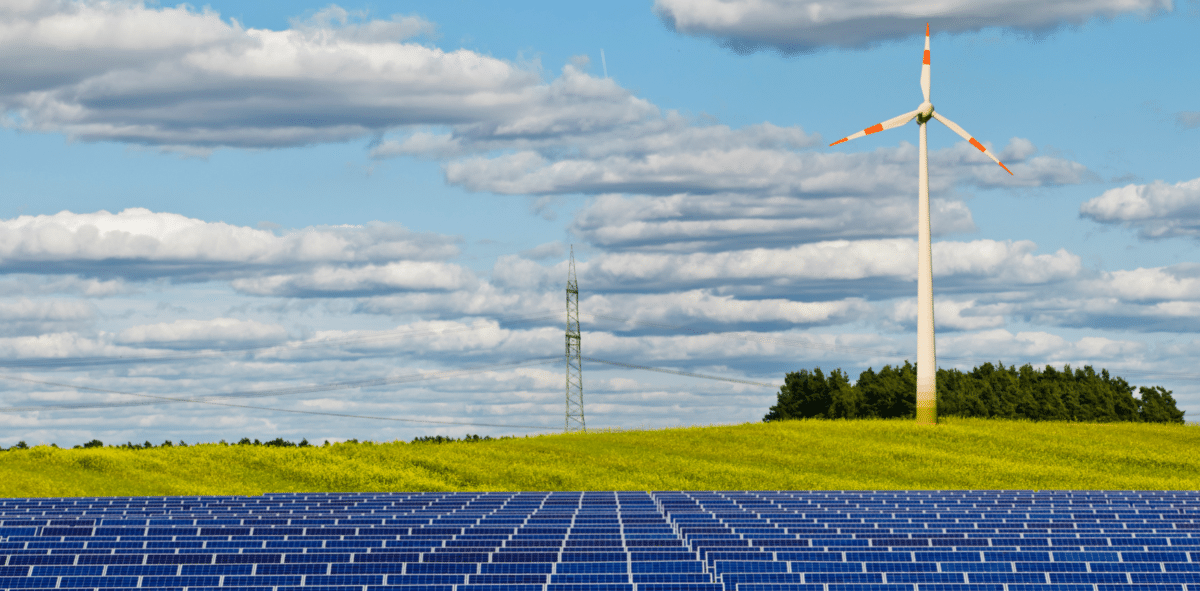
Towards net zero: Four key considerations for organisations on a decarbonisation journey
31.3.2025Strong geo-political, social and economic forces are influencing the pace of global investment in decarbonisation. Driven by economic factors, the Trump administration’s stance to curb action on climate change stands at one end of the decarbonisation investment approach, whereas other countries in Europe and Asia Pacific (including Australia) recognise they are behind in their quest to reach decarbonisation goals and are seeking measures to accelerate investment.
Despite the perception of headwinds for continued investment in decarbonisation, organisations globally continue to invest strongly. The reason for this is tied to corporate culture and beliefs – the need to address customers, investors and corporate economic goals.
Today, we examine the four primary considerations organisations are assessing when deciding on their decarbonisation journey:
1. Customer/consumer sentiment
The sentiment of an organisation’s customers and consumers is a primary driver in the decision to invest in decarbonisation.
Research from 2024 indicates that consumer sentiment toward sustainability and decarbonisation remains robust amid economic challenges. A PwC survey found that 85% of consumers have directly experienced the disruptive effects of climate change and are prioritising sustainable consumption. Despite cost of living pressures, they are willing to spend an average of 9.7% more on sustainably produced or sourced goods.
In the United States, consumer confidence in the energy system has declined. The EY Energy Consumer Confidence Index dropped from 64.8 in 2022 to 56.9 in 2024, with 68% of consumers believing they are doing everything they can to be sustainable. Additionally, 65% feel energy providers should lead the shift to cleaner energy sources.
Overall, while there is a clear consumer preference for sustainable products and decarbonisation efforts, economic factors such as inflation and cost of living pressures influence purchasing decisions, leading to a complex and varied consumer sentiment landscape that organisations must assess in the context of their own decarbonisation investments.
2. Investor sentiment
In 2024, investor sentiment toward decarbonisation exhibited both positive momentum and notable challenges, influenced by policy developments, market dynamics, and economic factors.
- Positive sentiment for long-term growth:
Many investors, particularly those in sustainable finance and ESG-focused funds, view stronger decarbonisation regulations as a positive signal for long-term value creation. Investors are increasingly focusing on companies that are proactive in reducing their carbon footprint.
Research from the Clean Energy Monitor revealed that the fourth quarter of 2024 saw a total of $19 billion in new investments in clean energy production and industrial decarbonisation, marking a 5% year-on-year increase. Notably, the electric vehicle (EV) supply chain attracted significant attention, with $14 billion invested, reflecting a 79% increase compared to 2023.
3. Economic cost and benefit
A common example of this consideration for companies is the long-term cost differential between operating using renewable energy vs remaining with traditional fossil fuel-based energy generation.
Whilst this can be a complex equation due to the nature of the operation using the energy, several factors in the last five years have made a switch to renewable energy compelling.
These include:
- Declining costs of renewables: Over the last decade, the cost of renewable energy technologies, particularly solar and wind, has fallen significantly due to technological advancements and economies of scale. In many regions, renewables are now cheaper than fossil fuels.
- Levelized Cost of Energy (LCOE): Renewables often have a lower LCOE compared to fossil fuels, which accounts for the total lifetime cost of generating electricity, including capital, operating, and maintenance costs.
- For instance, solar and onshore wind projects are already competitive in many markets, and in some regions, they can even provide lower-cost energy than traditional coal or gas plants.
- Energy independence: By investing in renewable energy, companies and countries can reduce their dependence on imported fossil fuels, leading to more predictable costs and improved energy security. This is especially important in countries that rely heavily on energy imports.
In many cases, switching from fossil fuels to renewable energy can offer economic benefits to a company. This transition often creates a competitive advantage, enabling the company to deliver higher returns to shareholders. It can also serve as a platform for diversification and growth.
4. Regulatory obligations
The Trump administration is relaxing requirements for organisations to report carbon emissions and footprint, whereas in Europe and Australia, those obligations have increased. In 2025, Australia will see its first reporting year under the IFRS reporting requirements for high-emitting organisations. In Europe, the ESRS standards that govern carbon reporting now require disclosure of Scope 1, 2, and 3 emissions.
Whilst there are differing philosophies for carbon reporting and any subsequent connection to penalties or carbon trading, there are also different underlying sentiments from key affected groups.
Environmental groups argue that mandatory regulations can push industries to adopt more aggressive climate strategies, promote innovation, and speed up the transition to a low-carbon economy. Industry and organisations, particularly those in the renewable energy, clean technology, or green finance sectors, view stricter decarbonisation regulations as an opportunity.
Large companies that have already made significant sustainability investments, such as Tesla, Microsoft, or Google, tend to support stronger regulations, as they align with their existing strategies and long-term goals. Organisations in energy-intensive industries, like oil and gas, manufacturing, and transportation, view stricter regulations as a burden. They are concerned about the high costs of compliance, which may affect profitability, especially in the short-term.
Summary
Whilst there have been several recent climate change policy changes by governments (notably in the US), the underlying sentiment for the need to continue to invest in areas such as renewable energy remains strong.
Market disruption caused by the actions of participants decarbonising their operations is creating competitive tension and is a key issue when organisations decide what paths to follow in their decarbonisation journey.
The key to making these decisions is an assessment of customer attitudes and sentiment toward the need to decarbonise, investor policy for proactive carbon emission reduction by investees, regulatory requirements and the economic impact of implementing and benefiting from initiatives such as the use of renewable energy.
We believe that political rhetoric against the need for action against climate change will not halt the market forces that currently compel organisations to invest heavily in decarbonisation, and those organisations that choose complacency in this regard are likely to suffer from unfavourable optics and competitive disadvantage.
InterFinancial Clairfield operates dedicated and focused Clean Energy sector teams around the world. In Australia, our Clean Energy lead, Derek Thomson, is at the forefront of driving projects and advising organisations on strategies to align with the global transition towards net zero. Reach out to Derek to continue the discussion on your journey towards decarbonisation.









